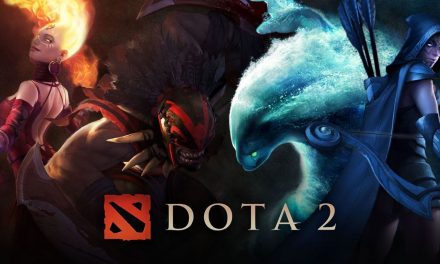Digital games were speedily becoming one of the world’s most preferred pastimes even before the health crises induced lockdowns. But this came to its peak when live entertainment was halted because of the crises.
One of the most defining points of gaming right now is the breadth of the spectrum of players. You can play casually from your sofa, there are opportunities to stream to perhaps make some money, and of course – if you’re a professional, to compete at a high level. CS:GO is one of the most widely followed PC games in the world and millions of people tune in to watch their favorite streamers or even use sites like csgobook.com which offer CSGO gambling games, where players can use their skins to upgrade their current items or win new skins.
Right from April till now, the US box office receipts for each week has ended 97 percent down, while gaming revenue has always ended 50 percent up all those weeks when compared with what it was before. Playing digital games on mobile devices has become more enjoyable because of the increase in bandwidths, and that has made gaming revenues to rise from below $20 billion in 2010 to above $160 billion in 2020, much more than movies, music, and books.
However, gaming is not only displacing other forms of entertainment, it is also delivering 3D digital environments for people to interact in a very free manner, create content, and transmit knowledge and information in never seen ways. Though games are developed by very smart set of coders for the purpose of enjoying fun, the gaming platforms are actually taking over the future of the digital world – and we won’t be wrong if we say that gaming will become the future of the virtual world.
The gaming sites became centers for all sorts of events when the world stayed at home because of the health crisis. In game streaming sites like Discord and Twitch, teachers were hosting their online classes for students to spend time and learn. Concerts have been hosted in Fortnite while wedding events have been held in Animal Crossing. Students of the University of Chicago, those of the University of Pennsylvania and those of other universities created 3-D replicas of their school environment inside Minecraft, while some held their graduation in it.
The world of 3D has become a good business. When you look at Fortnite from Epic games, you will discover that it works on the Freemium model. Here, players can get into the 3D world in the game at no cost. However, when they get in, they will need to purchase the needed virtual accessories like outfits, dance moves, equipment and some branded merchandise from external sources like the National Football League with money. Last year alone, Fortnite recorded estimated revenue of $1.8 billion, and most of this came from the sales of virtual goods to their over 350 million subscribers.
Haven noticed the level of threat that gaming companies pose to the virtual world, Apple, Google, Amazon and other internet giants are striving to be in control of the stakes in what many people regard to as a metaverse (one of the terms borrowed from Snow Crash, a 1992 sci-fi novel by Neal Stephenson, where the arrival of a parallel online world was anticipated). Some pioneers of the online gaming world like Mojang Studios that created Minecraft have been purchased by firms like Microsoft, and they are capable of buying out more of those.
The internet giants have been accused by critics of unfairly taking a very huge percentage of the more than $120 billion mobile apps global market, of which more than three quarters are spent on gaming apps. The fact that the only firm that is able to stand up to the tech giants is the gaming company named Epic is a sign of what gaming has turned into in the last few years. A few weeks back, Google and Apple removed Fortnite from their app stores because they failed to pay the 30 percent cut that both stores collect from app purchases made on them, but epic retaliated with a lawsuit, as they described the cut as a very ‘oppressive’ tax.
This reveals that the tech giants do not have the powers to do whatever they want, because they are not immune to everything. Can you recall IBM, Microsoft, and Intel that were once too big in the digital world that it seemed no one could challenge them? But the truth is that they were actually not invincible. The virtual world is still nascent, and huge growth is being witnessed in that sector. So, no firm can lay claim to any permanent hold on it.
Majority of the gaming firms have gotten to where Facebook and Google were 10 years ago, with millions of registered users, though they may not be gaining as much as they want from each user. This shows that the potential for growth is still there. There are also very powerful backers for these firms. For example, Tricent, which is a tech giant from china, has a stake in the firm that bankrolls seven out of the top 10 grossing games since 2008, and the firms include epic games.
People that regard digital gaming as a waste of time that kills the mind at best and as a complete effective training in antisocial behaviors at worst will be completely unsettled by the idea of a virtual world that is driven by gaming. But this view is an archaic one, because there is evidence to show that a lot can be gained by playing games. The skills that could be developed through games include motivation, learning concepts, and spatial skills.
Gaming is most likely going to add a third dimension to the prevalent 2D digital experience. Through this, fully realized worlds would be created, and in them, there will be opportunities for people to work, study, play, shop and do other things in very immersive and interactive ways, and this will help them foster increased social interaction, innovation, and creativity.











![[Rumor] GTA 6 to be digital-only at launch… to avoid story spoilers](https://vgleaks.com/wp-content/uploads/2024/03/gta-6-150x150.jpg)
![[Rumor] Resident Evil: Code Veronica remake could be announced this year and launch in 2027](https://vgleaks.com/wp-content/uploads/2026/01/resident-evil-code-veronica-150x150.jpg)
